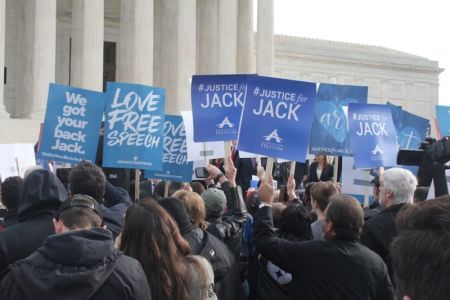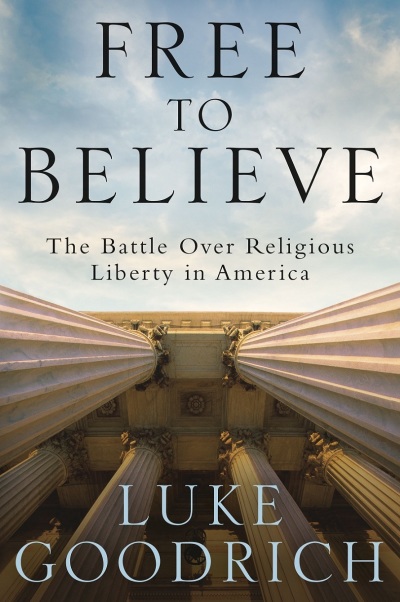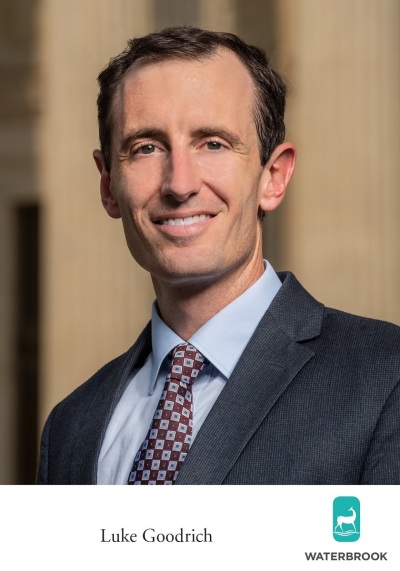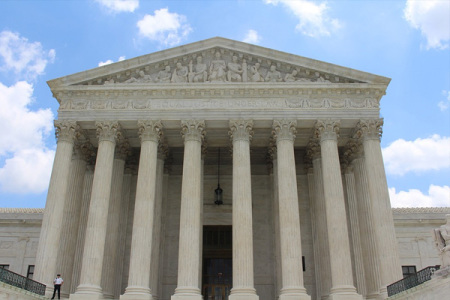What are the biggest threats to religious liberty in the US?

What is the status of religious liberty in America? What are the biggest threats to the freedom of religion? How should Christians, especially those who hold conservative theological views, approach the debate?
Luke Goodrich, an attorney with the religious liberty law firm Becket, attempts to answer these and other questions in his new book, Free to Believe: The Battle over Religious Liberty in America.
“We've long lived in a country where religious freedom was secure, and we didn't need to give it much thought,” he wrote. “Now we're realizing the country is changing and we might not enjoy the same degree of religious freedom forever. If we don't start thinking about it now, we'll be unprepared.”
The Christian Post interviewed Goodrich about his book on religious liberty and related topics, including how Americans might misunderstand freedom of religion and how he believes the U.S. Supreme Court is handling the matter.
Pilgrims, Martyrs, and Beginners

Goodrich wrote about three categories he believes many American Christians fit into regarding how they approach religious liberty.
The first group, which he labels “Pilgrims,” see Christianity as having an essential place in society and often favor the state promoting religion.
The second, labeled “Martyrs,” believe Christians should not expect a special place in society and feel that churches should be counter-cultural and expect persecution.
The third, labeled “Beginners,” are individuals who support religious freedom, but do not feel it is an important debate and likely know little about the topic.
Goodrich explained to CP that these categories each have their own pluses and minuses when assessing the nature of religious liberty and how it should be handled.
"In my experience, Christians fall more into the Pilgrim camp than into the Martyrs camp, but there are also a large number of Beginners who are just waking up to the issue and aren't sure what to think yet,” said Goodrich.
"And as far as who is the most and least correct, I think they all have some truth in them but they are all mistaken in different ways.”
Goodrich, who writes in the book that he believes there's a strong theological argument for religious freedom, feels there are “difficulties in the Pilgrim and the Martyr views” when it comes to that theological basis.
“If you don't have a firm biblical understanding of religious freedom as a Christian, you are prone to living in fear in the midst of religious freedom conflicts rather than joy. You're prone to hostility toward your perceived enemies rather than loving your enemies,” Goodrich told CP.
“And you're prone to having a distorted view of what really is a risk when it comes to religious liberty, where we should focus our efforts and what actions we should take to protect it.”
Biggest threats to religious liberty
In the book, Goodrich stresses the point that religious freedom challenges in the United States, especially for conservative Christians, do not compare to what happens in many other parts of the world.

“The sky is not falling. America is not about to become Communist China. But real and significant threats do exist — and they might not be quite what you think,” he writes.
Goodrich said that many American Christians tend to make one of two errors, either “to ignore very real threats to religious liberty” or to “exaggerate the threats that we face."
"There have been religious freedom losses,” he explained, when noting that many of these losses happened before they could get to the Supreme Court level. “There have been people whose businesses have been shut down, whose ministries have been shut down, and so there are real threats."
But some Christians “exaggerate the problems that we face right now in America, and that's a problem in the same way that the boy who cries wolf is a problem."
Nevertheless, Goodrich spoke about a new uptick in religious freedom threats because "our culture has changed" when it comes to acceptance of traditional Christian beliefs.
“For the first time in American history, common Christian beliefs are viewed as incompatible with the prevailing culture,” he said.
While various possible threats to religious freedom are discussed in the book, the question of LGBT rights versus religious liberty gets more attention than other issues. He told CP this was due to his “primary audience” being Christians who adhere to traditional teachings on social issues.
“For Christians who hold traditional beliefs about human sexuality, there is no doubt that the rapid advance of gay rights poses the most significant threat to their religious freedom,” he said.
The Supreme Court and religious liberty

In his book, Goodrich defines religious freedom as “the government, within reasonable limits, leaves religion alone as much as possible.”
In recent years, the Supreme Court has been “doing a very good job of protecting religious freedom under that definition.”
“At Becket, we are undefeated at the Supreme Court and if you look at the Supreme Court's religious freedom cases over the last 10 to 15 years, they are almost all really good decisions,” he said.
“Cases involving religious symbols or legislative prayer or funding for religious organizations, there's been a very strong trend away from the idea that the government needs to be hostile toward religion in the public square.”
He added that there have been “a long string of victories" for religious freedom cases before the Supreme Court on a host of issues connected to the Establishment and Free Exercise clauses.
These victories include Hosanna-Tabor Evangelical Lutheran Church and School v. Equal Employment Opportunity Commission, in which the high court ruled unanimously in 2012 that a Lutheran school could determine its own employment standards.
Another was the 2014 decision Burwell v. Hobby Lobby Stores, Inc., in which the Supreme Court ruled 5-4 that the Religious Freedom Restoration Act applies to closely held businesses like Hobby Lobby.
He considers the last “really bad decision” from the Supreme Court on religious freedom to be the 2010 decision in Christian Legal Society v. Martinez, in which the high court ruled that the University of California could deny a Christian student group official recognition because they required members to adhere to a statement of faith.
“That was a bad decision, but it was 5-4 and it was on a really odd set of facts with a narrow ruling,” added Goodrich, who felt the Supreme Court was shifting to the view that “the government can treat religion as a natural part of the public square."





















